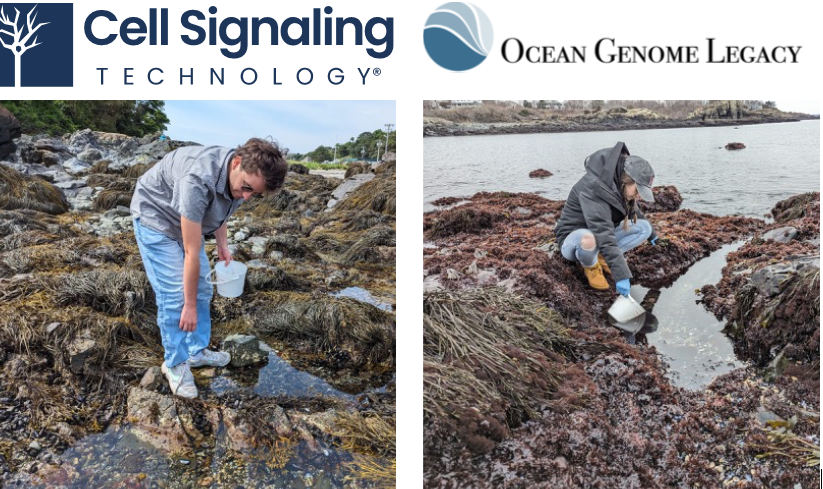Ocean Genome Legacy is thrilled to thank Cell Signaling Technology (CST), a biotechnology company headquartered in Danvers, Massachusetts, for awarding OGL a prestigious Annual Environmental and Social Responsibility Grant. This grant will support OGL’s long running and highly successful Student Research in DNA Preservation Program, providing funds for experiments to improve the quality of DNA extracted from frozen biological materials.
Freezing at ultra-cold temperatures (-80°C or colder) has long been considered the “gold standard” for preserving DNA in tissue samples. However, OGL’s co-op student researchers noticed that DNA extracted from frozen tissue often appears highly degraded. How could that be?
It turns out that researchers must typically thaw tissues before they can extract DNA. OGL students hypothesized that, even if this thawing lasts just a few seconds, there might be enough time for DNase enzymes in the tissue to break the DNA down. To prevent this damage, they are testing what happens if, instead of extracting DNA directly from frozen tissue, they first thaw the tissue overnight in chilled liquid preservatives.
Will this new strategy reduce DNA damage? If successful, it could save millions of frozen research samples in collections worldwide that might otherwise not be useful for genomic research. Early results look promising, but you must stay tuned to find out.
Be on the lookout for a new publication by OGL staff and students this time next year to find out how this story ends!

OGL co-op students Ryan Pianka (left) and Mia Bender (right) collect invertebrates from the rocky Nahant, Massachusetts, intertidal for use in DNA preservation experiments.
